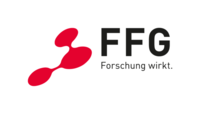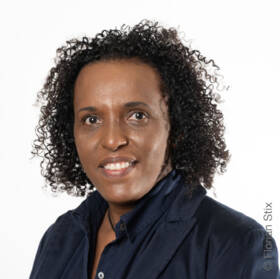Young people do research in the field of sustainable mobility.
Background
In Austria, the annual emission of greenhouse gases currently amounts to around 80 million tonnes. The share of the transportation sector has been approximately 22% in recent years making it one of the major contributors to greenhouse gas emissions. In order to achieve the desired goal of climate neutrality by the year 2040, significant changes in the transportation sector are therefore indispensable.
Project Content
Young people will be strongly affected by the consequences of climate change. For this reason, they are one of the most important target groups in achieving climate and sustainability goals. In the CLEA project, we are collaboratively developing concepts for “serious games” with students, aimed at creating a lasting awareness of climate protection. Different approaches are designed and adapted for various age groups and conditions. In workshops, students address mobility behaviours and their impact on climate and environment. They use simple calculation examples to measure CO2 footprints (for example, from home to school, etc.) and discuss the results. All participants are encouraged to consider social and societal aspects of mobility and to reflect on how “sustainable mobility” can be designed inclusively and with a focus on diversity. Moreover, they are involved in the development process of different game concepts and prototypes, they conduct surveys in their immediate surroundings (family, neighbourhood, etc.) and gather experience in presenting survey-results in an illustrative manner. Overall, this project advances the transition to sustainable transportation and promises to have a long-term impact on mobility behaviours.
Goals
The CLEA project pursues the objectives described below:
- Development and testing of game concepts with a focus on “sustainable mobility”
- Raising awareness for “sustainable mobility”
- Testing of a cross-age peer tutoring approach that takes into account different educational levels and backgrounds
- Promoting cooperation and exchange between different departments of the St. Pölten UAS, (pre-)school institutions, and companies
- Female technicians as well as technicians and academics with migration experience as role models
- Increasing the competence of children / young people with regard to their understanding of the interdependencies between mobility, transport, and social environment
- Enthusiasm for technical, economic, and social innovations
- Presentation of a realistic job profile of a technician
Methods
Under the guidance of scientists, students engage in workshops focused on the topic of “sustainable mobility”. They learn about various research methods and apply some of them (e.g., calculation methods for CO2 emissions and “ecological footprint”). Another significant focus in the workshops is how “sustainable mobility” can be designed inclusively and with diversity in mind. Using the acquired knowledge, the students themselves conduct research. They carry out surveys in their immediate environment and ascertain what mobility means to family members, neighbours, and acquaintances as well as what they think about sustainable mobility. In additional workshop, the data collected are analysed and interpreted together with scientists. Based on the insights gained, an analogue prototype of a game (made from recycled materials) and a prototype of a computer game are developed. Students from each school receive information about vacation trips, associated CO2 emissions, distances in kilometres, travel time, etc. and how all this can be incorporated into the games’ designs is addressed.
Results
The project makes a significant contribution to highlight and raise awareness about the topic of “sustainable mobility”. While it primarily targets young people, the methods it uses extend beyond this group and also reach their families and surroundings. Through events, exhibitions, and school visits, it reaches a broader audience as well. Furthermore, the project sparks the interest of students in technical, economic, and social sciences, encouraging them to pursue educational paths in these sectors. This goes hand in hand with an increase in the appeal of higher education institutions and relevant courses of study in the St. Pölten / Lower Austria region. The concepts and prototypes developed by the students form the basis for a follow-up project.
You want to know more? Feel free to ask!
International Coordinator
Department of Rail Technology and Mobility
- Goodville Mobility
- KdE GmbH


